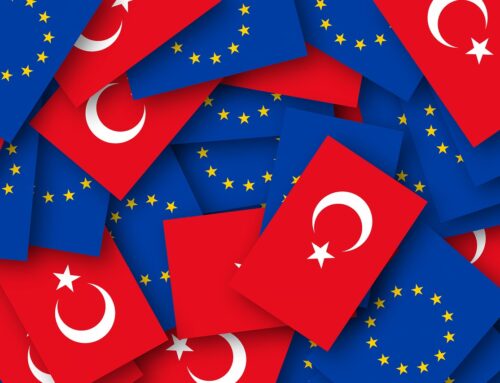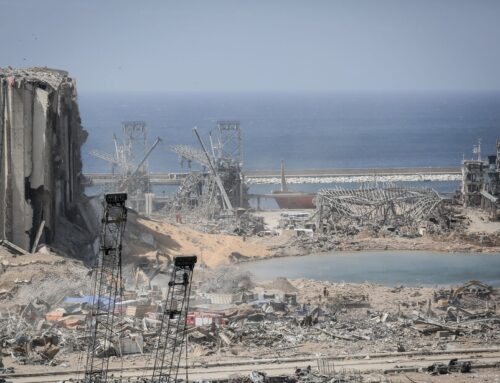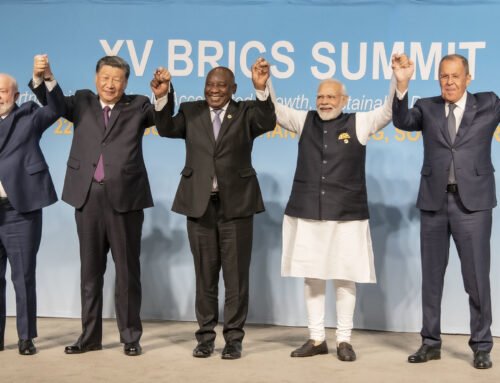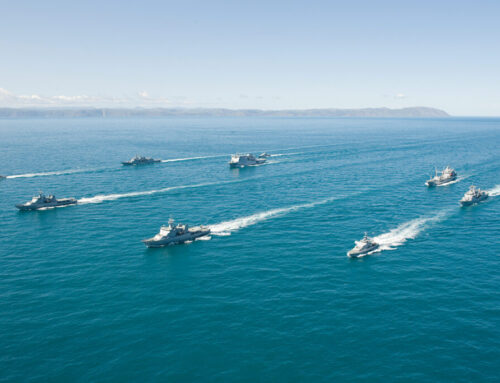Autor foto: Pudelek (Marcin Szala), Wikimedia Commons
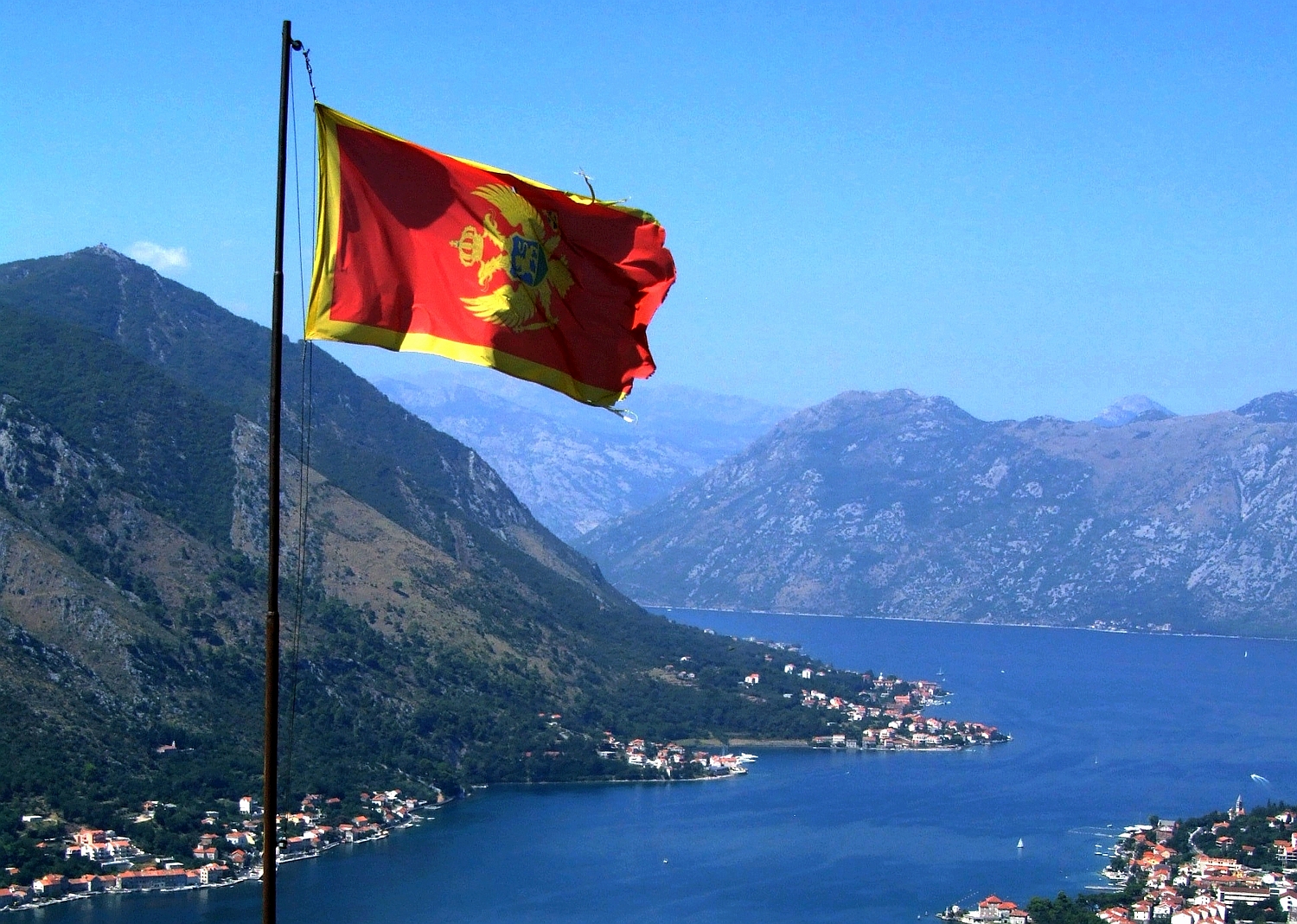
Montenegro – the next member of NATO?
March 1, 2016
Author: Agata Domachowska



Autor foto: Pudelek (Marcin Szala), Wikimedia Commons
Montenegro – the next member of NATO?
Author: Agata Domachowska
Published: March 1, 2016
At the beginning of December 2015, the foreign ministers of NATO member states decided to invite Montenegro to the Alliance. It would be the first expansion of the organization since 2009 when Albania and Croatia become new members. If all the members of NATO agree to the accession of this small Balkan country, its integration would take place at the next summit, which will take place in July 2016 in Warsaw.
Montenegro’s path to NATO
Montenegro has a population of a little over 600,000 people and is located on the Balkan Peninsula. It declared independence as recently as 2006, and a few months later (November 2006) joined the ‘Partnership for Peace’ program (see Table 1). The next step towards joining the Alliance was the signing in July 2008 of the Individual Partnership Action Plan (IPAP), which defined the schedule of the accession process. It should also be noted that in the years 2010-2014 Montenegrin soldiers took part in the International Security 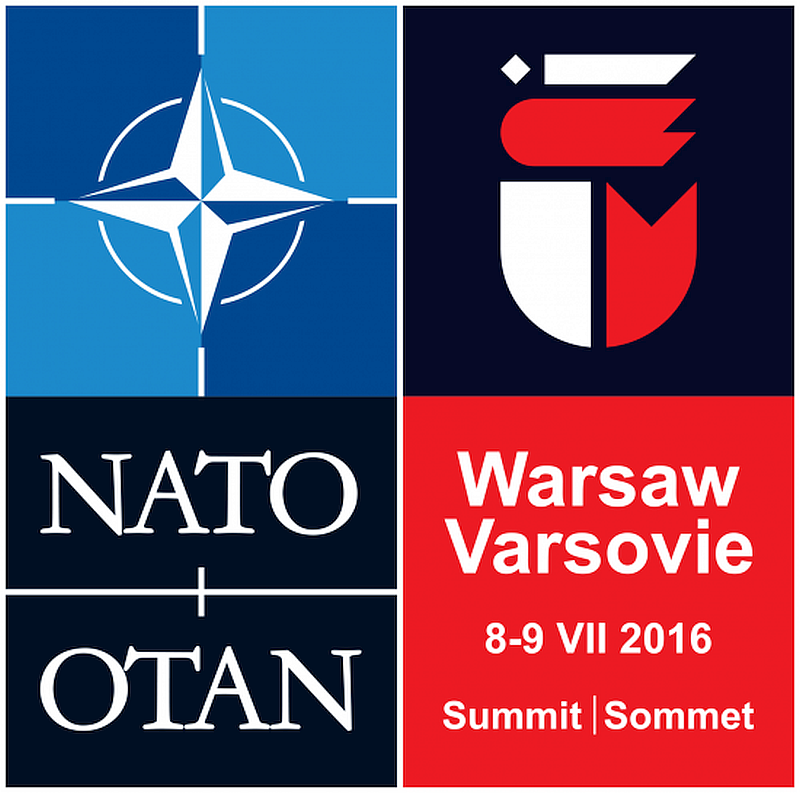
Montenegro has also managed to partially follow the recommendation of NATO and conduct deep reforms in the security apparatus, given the still significant activity of Russian agents, in particular, in the Montenegrin secret service. It was half a year after December 2014 when following the resignation of the then head of the National Security Agency (Agencija za nacionalnu bezbjednost, ANB) Boro Vucinić, Dejan Perunicić became its head, who at that time had already retired. His role was to restore the prestige of the security services, which for years had been criticized for taking non-professional activities and being under foreign influence.
Situation in Montenegro vs. NATO membership criteria
Each state wishing to obtain membership in NATO should meet at least the basic rules of the democratic Western societies. Taking into consideration, for example, the annual recommendations of the European Commission, it can be seen that Montenegro has still a lot to do in this regard. First of all, necessary reforms should be implemented which would strengthen the rule of law, judicial system, freedom of speech, and to take more decisive action in the fight against organized crime and eliminating corruption. Due to the failure to comply with the criteria, including the above, NATO decided to postpone the decision to invite Montenegro to the Alliance during the previous summit in Wales (2014).
Another important criterion is the degree of public support for NATO accession. Citizens of Montenegro remain significantly divided in this matter. Based on the results of public opinion surveys, conducted regularly by a non-governmental organization Centre for Democracy and Human Rights (Centar za demokratiju i ljudska prava, CEDEM), 36.5 per cent is in favor of accession, 36.2 per cent is against and 27.3 per cent of respondents declare that they would not take part in a possible national referendum on this subject. It should be added that Montenegrins are also divided on the need for a public vote on the issue – 50.2 per cent are in favor and 49.8 per cent against (November 2015). It should be added that Montenegro is a multiethnic state with Montenegrins, Serbs, Bosnians, Albanians and Croats. The Serbs are in the majority among the opponents of accession to NATO.
At the end of 2015 the part of opposition groups organized protests against the accession to NATO. At the same time, they have been demanding a national referendum, believing that it is the citizens who should decide on accession, not the parliament. These slogans have gained support mainly among that part of society that advocates the development of strong relations with Serbia and Russia and still remembers the events of 1999 i.e. the bombing of Yugoslavia by NATO forces (according to the research by CEDEM, a total of 27.6 per cent of citizens positively evaluates the organization of protests by the opposition, whereas 47 per cent negatively, with 25.4 per cent not having an opinion on the subject).
It should be noted that even among the opposition itself there are divisions on the issue of accession of Montenegro to NATO (see Table 3). Undoubtedly, what unites all the opposition groups is the desire to remove Prime Minister Milo Djukanovic from power along with his party – the Democratic Party of Socialists of Montenegro (Demokratska Socijalista Partija Crne Gore, DPS). The opposition demands the immediate resignation of Djukanovic and the establishment of a transitional government that would prepare the state for early elections. The ruling party does not intend to accept such a solution. It is worth noting that, despite this significant criticism, it is the DPS that still enjoys the greatest support among the population (but this is mostly resulting from too many differences between the opposition parties and the absence of a single leader). In the next parliamentary elections, which will likely take place later this year, Djukanovic will possibly win again (it remains unknown whether he would be able to govern alone, or he would have to form a coalition government). Nonetheless, Montenegro’s accession to NATO will be the leading theme of the election campaign, and the existing divisions between supporters and opponents will continue to deepen.
Russia – objection to Montenegro’s accession to NATO
Russia opposes Montenegro’s accession to NATO considering it a threat to its security. Obviously, Montenegro, hundreds of kilometers away from the territory of the Russian state, with such a low military potential, is not in a position to threaten it in any way. Nevertheless, Moscow is trying to incite negative sentiments against NATO that exist among part of the Montenegrin society. It should not be forgotten that, for centuries, Montenegro and Russia had been united by Orthodox community. These ties, however, have been consistently loosened since the mid-1990s when the then Prime Minister Djukanovic, building its position in the country and trying to become independent from the government in Belgrade, chose a pro-Western course, and declared Euro-Atlantic integration as a priority of Montenegro’s foreign policy. Therefore, at present Russia does not have as good a relationship with the government in Podgorica as it does with Belgrade. This does not change the fact that Russia is the second largest foreign investor in Montenegro (Russia managed to control the construction sector and tourism sector on the Adriatic coast). The government in Moscow already announced that it would break some contracts with Montenegro were it to join NATO. Moreover, Russia is trying to influence the situation in Montenegro by the Serb minority, who criticize the government of Djukanovic. It was in Moscow where the plan for the creation of anti-NATO coalition was formulated. It was initiated by Milan Knežević, the leader of the Montenegrin party – the Democratic People’s Party (Demokratska Narodna Partija, DNP). The plan assumed Montenegro’s military neutrality, which would be guaranteed by both NATO and Russia. Other opposition parties in Montenegro, however, did not support this idea.
Conclusions and recommendations:
- Montenegro’s accession to NATO would mean the fulfillment by the authorities in Podgorica of one of the two priorities of its foreign policy (since the mid-1990s the country has been consistently trying to approach the Euro-Atlantic community). Montenegro has confirmed its commitment through the implementation of further reforms aimed at democratizing the country, the modernization of the armed forces and the participation of Montenegrin soldiers in international missions, both under the auspices of the UN, NATO and the EU. Thus, Montenegro is willing to participate in building and maintaining international security.
- Considering the numerical state of the Montenegrin army, the membership of the country in NATO should be assessed primarily in the political dimension. Namely, with the accession of Montenegro, the Alliance would encompass the entire coast of the Adriatic and Ionian Sea. In the longer term, the membership of this small country would contribute to ensuring greater security and stability in the region of Southeastern Europe. In addition, the accession of Montenegro, seven years after the last enlargement, would confirm NATO’s ‘open door policy’. All the more that in the near future further accessions should not be expected.
- Extending the invitation to Montenegro to join NATO has strengthened the position of the ruling party of Milo Djukanovic. Thus, it can be assumed that in the next parliamentary elections DPS, which since the beginning of the 90s has ruled in Podgorica continuously, would win again. Such a scenario, however, carries the risk of further strengthening of the negative sentiment in a society that does not see a chance to make a real change by the ruling power. In the face of such a situation the EU should have a closer look at the internal situation in the country, and stimulate the government to accelerate the democratization (otherwise it is possible that after the accession to NATO, Montenegro’s accession process to the EU would not accelerate, but on the contrary, would slow down).
- It is likely that, in spite of the deep division in society, Montenegro will join NATO at the next NATO summit in July 2016 in Warsaw. However, further polarization among citizens may adversely affect the stability of the political system of this country, and in the long run also the entire region. One should not forget that Montenegro is a multinational state with a significant Serbian minority. Therefore, both the Alliance and the EU should have a stronger influence on the ruling authorities to strengthen social dialogue, while introducing real changes that would lead to building a civil society equipped with proper tools to control power. Montenegro’s accession to NATO is also connected with negative consequences for Russia. Moscow would lose the opportunity to influence another country in the region, limiting its influence to Serbia itself. This would therefore be considered as Russia’s failure, not only in a symbolic dimension in the still ongoing rivalry with the West.
- Before the NATO summit in Warsaw in July, Poland should take advantage of the fact that the relationship between Podgorica and Moscow have been constantly cooling down, and should try to convince Montenegro to the idea of getting stronger security guarantees for the countries of the region, e.g. in the form of a permanent deployment of NATO forces on the territory of the eastern flank.
- Aiming to strengthen cooperation with Montenegro at the military level, Poland could also help the country in training officers (e.g. in Polish military academies). Moreover, given the mountainous territory of Montenegro and the lack of sufficient military training ground, Poland could propose e.g. to organize joint exercises on its territory. Our country has already had experience in this field gained e.g. thanks to cooperation with Croatia (Polish soldiers prepared Croatian special forces to participate in NATO operations. One of the elements of this training included the creation of a joint combat team in Afghanistan).
- The required modernization of the Montenegrin army should provide opportunities for Polish arms companies. Montenegro needs different kinds of weapons, mainly helicopters and radars for air defense system. At the same time, it does not have too many funds. Polish companies with cheaper weapons systems than French or American ones, may create an offer that would be acceptable to the Montenegrin partner.
Author: Agata Domachowska, PhD, Research Fellow of the Casimir Pulaski Foundation
Table 1. Stages of Western Balkan states’ accession process to NATO
| Country | Partnership for Peace | Individual Partnership Action Plan -IPAP | Intensive Dialogue |
Membership Action Plan-MAP | Invitation to join | NATO membership |
| Albania | 01.1994 | – | – | 06.1999 | 04.2008 | 04.2009 |
| Bosnia and Herzegovina | 12.2006 | 09.2008 | 04.2008 | 04.2010 | – | – |
| Croatia | 05.2000 | – | – | 05.2002 | ‘04.2008 | 04.2009 |
| Serbia | 12.2006 | – | 04.2008 | – | – | – |
| Macedonia | 11.1995 | – | – | 04.1999 | – | – |
| Montenegro | 12.2006 | 07.2008 | 04.2008 | 12.2009 | ‘12.2015 | – |
Source: NATO and the Western Balkans: New Strategy, Old Challenges, by G. Meshos, EKEM, Athens 2010, p. 11.
Table 2. The size of armies of Western Balkan States
| Country | No. of soldiers (Global Firepower Ranking – active presonnal data through 2014) |
Military spending according to SIPRI (2014) in millions of dollars |
| Montenegro | 1850 | 78,5 |
| Serbia | 52000 | 950 |
| Bosnia and Herzegovina | 15000 | 200 |
| Croatia | 21300 | 875 |
| Albania | 14500 | 135 |
| Macedonia | 8000 | 133 |
Own source
Table 3. The position of the most important Montenegrin political parties on the accession of Montenegro to NATO
| Political party | Coalition/opposition | Position towards NATO (for/against accession) |
| Democratic Party of Socialists of Montenegro (DPS) | COALITION | FOR |
| Social Democratic Party of Croatia (SDP) | OPPOSITION (from the January vote against granting a vote of confidence for the government) | FOR |
| Democratic Front (DF): – New Serbian Democracy (NOVA) – Movement for Changes (PzP) – Democratic People’s Party (DNP) |
OPPOSITION | – AGAINST– FOR – AGAINST |
| DEMOS | OPPOSITION | FOR – only if the referendum takes place |
| Positive Montenegro | COALITION (from the January vote for granting a vote of confidence for the government) | FOR |
| Socialists People’s Party (SNP) | OPPOSITION | AGAINST |
| Democratic Montenegro | OPPOSITION | Unspecified position – ‘for the referendum |
| URA Civic Movement | OPPOSITION | FOR |
Bosniak Party (BS) |
COALITION | FOR |
| Liberal Party (LP) | COALITION | FOR |
| Democratic Party (DP, Albanian minority) | COALITION | FOR |
| FORCA Coalition (Albanian minority) | COALITION | FOR |
| Croatian Civic Initiative (HGI) | COALITION | FOR |
Own source


